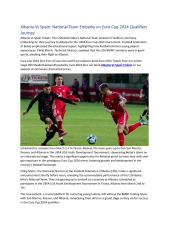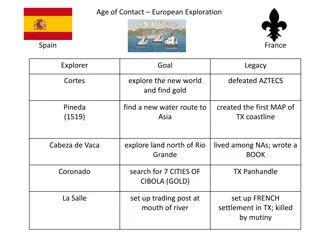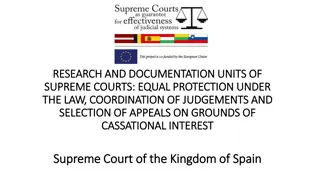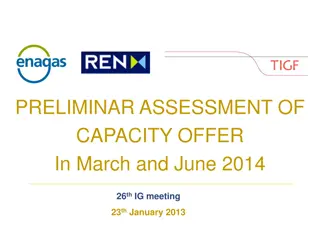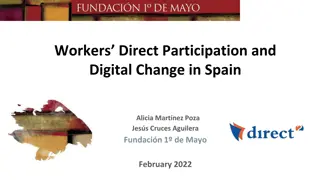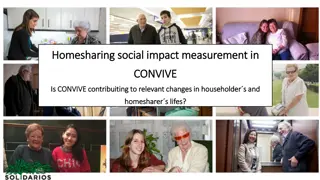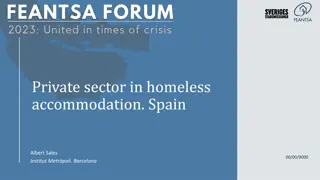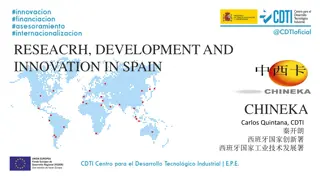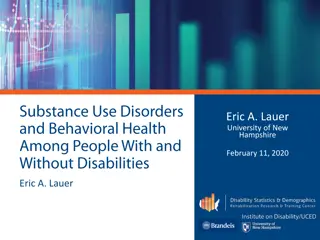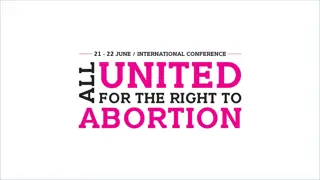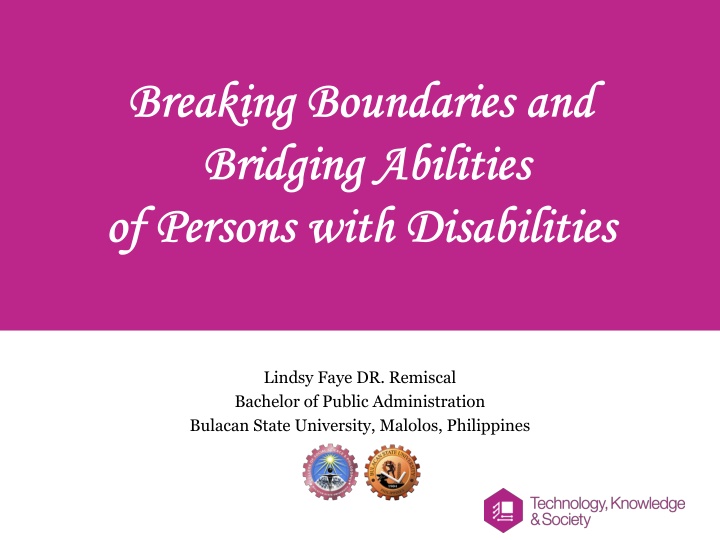
Enhancing Employment Opportunities for Persons With Disabilities in the Philippines
Addressing the challenges faced by Persons With Disabilities (PWDs) in the workforce in the Philippines, this study explores the impact of state policies, local ordinances, and employment rates on PWDs' productivity and fulfillment. It also investigates the correlation between work productivity and fulfillment rate of PWDs in different workplace settings, aiming to promote inclusivity and accessibility in employment opportunities for PWDs.
Download Presentation

Please find below an Image/Link to download the presentation.
The content on the website is provided AS IS for your information and personal use only. It may not be sold, licensed, or shared on other websites without obtaining consent from the author. If you encounter any issues during the download, it is possible that the publisher has removed the file from their server.
You are allowed to download the files provided on this website for personal or commercial use, subject to the condition that they are used lawfully. All files are the property of their respective owners.
The content on the website is provided AS IS for your information and personal use only. It may not be sold, licensed, or shared on other websites without obtaining consent from the author.
E N D
Presentation Transcript
Lindsy Faye DR. Remiscal Bachelor of Public Administration Bulacan State University, Malolos, Philippines
INTRODUCTION INTRODUCTION Amid the progressing societal industrialization, employment is viewed as an essential factor that provides for people s everyday survival. Various evidence shows employment as a security of a person s welfare, self- satisfaction, and productivity towards his goals, and, persons with disabilities within our community are regrettably not exempted from these circumstances.
ABSTRACT ABSTRACT The workplace has often been dominated by able-bodied individuals since as Persons With Disabilities (PWD) emerge to the new generation of workforce, their function and productivity are often scrutinized. In the Philippines, several state policies and laws were crafted to address the issues regarding employees who are classified as persons with disabilities (PWDs). The 1992 Magna Carta for Disabled Persons is an act that provides for the rehabilitation, self-development, and self-reliance of disabled persons and their integration into the mainstream of society which states that No disabled person shall be denied access to opportunities for suitable employment . In connection with this, the local government of Malolos City in the province of Bulacan, adopted City Ordinance No. 23-2023 which mandates public and private establishments to employ qualified PWD employees as inclusivity and accessibility of the PWDs for employment remains a challenge.
BACKGROUND BACKGROUND Unemployment has become one of the major problems for Filipinos, particularly for those with disabilities. The situation even worsened during the pandemic. According to the Philippine Statistics Authority (PSA) there were almost 76 million working- age Filipinos living in 2022 and only 1.9 million were PWDs. In 2022, the labor participation rate of persons with disability dropped to 17.9 % from 22.1% in 2019 (January 2022 Labor Force Survey). Meanwhile, the same study indicates that during the same time period, PWD unemployment increased from 4.5% to 7%. The Department of Social Welfare and Development (DSWD) released the Regional Profile of the Poor - Region 3 (2023), it indicates that approximately 1% of the deprived individuals, or 14,951 are PWD in Region 3. And only 17.3% or 1,704 PWD who are 15 years old.and beyond have reported jobs.
HYPOTHESIS HYPOTHESIS The paper acknowledges the possible imminent correlational relationship of the work productivity and fulfillment rate of PWDs in a workplace-be it a public or a private institution which streamlined the pertinent relevance of employed PWDs in all types of entities regarding their statuses as to how they cope with the flow of progression in harnessing developing ways and means to achieve a task in a workplace.
METHODOLOGY METHODOLOGY The researchers utilized a descriptive method of research using quantitative and qualitative approaches. A correlational analysis of the data was utilized to determine if there is a definite relationship between the main variables of the study, namely the work productivity and work fulfillment of those employed as persons with disability.
PARTICIPANTS PARTICIPANTS Using purposive sampling to gather participants; The participants of this study are limited to registered PWD employees of both public and private institutions in the City of Malolos Bulacan. Accordingly, a total of 20 male and female respondents from the age group of young adults to old-aged adults participated in this study's data gathering and collection. The researchers crafted and extracted an interview questionnaire based on local studies related to PWD employment in the Philippines. All data pertinent to the topics of this study were gathered personally by the researchers through the collection of the responses from employed persons with disability in public and private institutions through questionnaires.
RESULTS RESULTS With the UNCRPD or the United Nations Convention on the Rights of Persons with Disabilities already ratified in our country together with the Magna Carta for Persons with Disabilities (Republic Act No. 7277),. Also affirmed by the local government of the city of Malolos in the province of Bulacan through their City Ordinance No. 23-2023 which mandated all private and public institutions to employ qualified PWDs and the elderlies. It has been found that it is still more likely that a PWD employee within a workplace may experience being stereotypically perceived as less incapable due to several factors causing a significant influence on their work fulfillment as they continue to receive subpar roles and limited participation and productivity within the workplace.
RESULTS RESULTS Despite the prohibition of workplace discrimination toward PWD employees, several PWD hopefuls still struggle to conquer the barriers of joining the local Malolos workforce. A person with a case of Cerebral Palsy that only affects his speech and involuntary head muscle movements mildly, received discouragement from joining the education field leading him to give up on pursuing a teaching career. By dissuaded by colleagues, employers, and even the community from continuing their pursuit of a gainful job for being merely different ; PWD are often deprived of the chance to showcase their skills. The output also showed that employers find it difficult to comply with the requirements set by the R.A 7277 because although 1-5% percent reserved population is attainable, it is the proper workplace accommodations that lead them to hesitate or even refuse to employ persons with disabilities since accommodations such as simply adjusting work schedules, installation of ramps, braille signages, acquiring sign interpreters, and other assistive technologies require several resources and manpower which they would rather spend on other aspects of their company operations.
CONCLUSION CONCLUSION Rather than being treated as equals, PWDs are seen as being at a disadvantage when it comes to skills, education, and qualifications comparison, and as a result, PWD employees are only able to perform elementary tasks that their colleagues consider as being fair to their disabilities. Despite the lack of workplace accommodations for PWDs, few employers still pursue hiring while some PWD applicants themselves also prefer to work for companies regardless of not possessing these facilities and utilities due to reasons such as poverty and lack of sufficient education. This in turn, severely affects their performance within the workplace as these mentioned accommodations are a way to ease access for PWD employees; instead of ramps- PWDs with mobility difficulties brave the stairs consuming most of their time and energy as early as their first hours in the office, while with the absence of sign interpreters jeopardizes communication with deaf or mute employees leading to several problems among colleagues, and the unmodified work hours seriously take a further toll on their physical health.
CONCLUSION CONCLUSION These identified factors significantly impact the overall work fulfillment of PWD employees. A number of employed PWDs do not feel that they are doing the work they are ready and more than capable of doing as they are isolated to only work on basic tasks because of their disabilities. Unfortunately, even with the Philippine law and city ordinances that protect disability rights and the advocacy of certain groups and government institutions, PWDs are still stereotyped as insufficient and incapable. After identifying underlying factors that influence work productivity, and witnessing how work productivity and work fulfillment are correlated, in conclusion, the study suggests that safeguarding the equal opportunity and treatment of PWD employees does not stop at advocacies and policies. A workplace environment where diversity is valued must be collectively cultured not just for equality but also as a way to nurture creativity, innovation, and prosperity among colleagues inside the workplace.
REFERENCES REFERENCES Seeking inclusion, PWDs fight for proper recognition in the workplace Kazandra Vargas, Juliana March Mendoza September 8, 2022 https://thelasallian.com/2022/09/08/seeking-inclusion-pwds-fight-for-proper-recognition-in-the-workplace/ Still a long road ahead: PWDs struggle to join Philippine workforce Jezreel Ines- April 29, 2023 https://www.rappler.com/newsbreak/in-depth/persons-with-disability-struggle-philippine-workforce/ Report on Labor Force Survey (January 2022) https://neda.gov.ph/wp-content/uploads/2022/04/Report-on-LFS-January_2022.pdf Malolos City Ordinance No. 23-2023 April 20, 2023 https://maloloscity.gov.ph/wp-content/uploads/2023/08/O_23_2023.pdf Republic Act. 7277 https://ncda.gov.ph/disability-laws/republic-acts/republic-act-7277/ Regional Profile of the Poor 2023 https://fo3.dswd.gov.ph/wp-content/uploads/2023/07/Regional-Profile-of-the-Poor.pdf
SALAMAT SALAMAT GRACIAS GRACIAS


